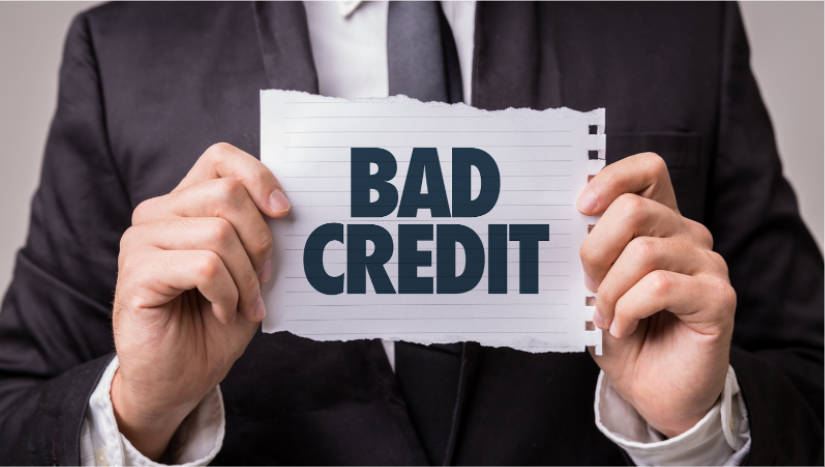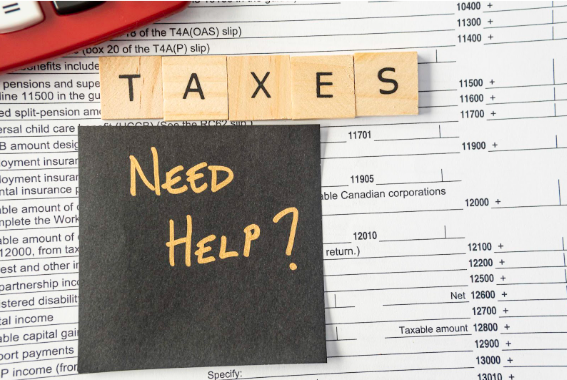
Bad Credit Affecting Your Credit Report
Your credit is one of the most important metrics of your financial life. When you have bad credit, not only can it be a hurdle to meeting your financial goals, but it can affect other parts of your life.
If you are working to improve your finances, understanding what actions affect your credit and strategies to improve them can help you improve your credit score to focus on your financial goals.
What is bad credit?
In Canada, your credit score ranges between 300 and 900. A credit score of 660 or above is considered good.
A low credit score indicates bad credit. Your credit score is a guide for how lenders might think of you as a borrower when they decide to lend to you. They are looking for borrowers who will pay them back on time, in full.
Your credit score indicates how likely you will pay back your loans on time.
There are two major credit rating agencies, Equifax and Transunion, that compile the information and report on your credit score. Here is how they rate credit
Scores:

Based on data from Equifax and TransUnion
What Causes Bad Credit?
Your credit score is based on many factors. Here are some actions that can affect your credit score negatively.
Missed, overdue or late payments.
How often you make payments on time makes up a significant portion of your credit score. When you are late on your payments or miss them altogether, it can impact your credit score negatively.
Late or missed payments stay on your credit report for six years.
Accounts in Collection

If behind on your payments, your creditor may send your account to collections and report it to the credit bureaus.
Accounts sent to a collection agency stay on your credit report for six years.
Using too much credit
You have a high debt utilization ratio if your debt balances are high compared to your total available credit. If lenders see a high utilization ratio, they might think you have too much debt. If all your credit cards and lines of credit are near the credit limit, for example, it can affect your credit score negatively.
Judgements, liens and bankruptcies
If you have ever been through a lawsuit and owe money, or been through financial hardship and filed for bankruptcy, credit bureaus will include this information on your credit report.
These can impact your credit score, and the information typically stays on file for six years.
How does bad credit impact you?
Lenders use your credit score to decide if they trust you to pay back the money when you borrow it.
Your credit score is a significant financial metric that can affect many parts of your financial life.
It can impact your ability to buy a home, rent a place, or even get a job in some cases.
Harder to borrow
A low credit score doesn’t mean that you cannot borrow money. But bad credit does make it more challenging to borrow money when you need it.
Whether you’re looking for a house, car financing, or a line of credit to renovate your home, banks and lenders may turn you down because of a low credit score.
Higher interest rates
In some cases, you might still get approved for financing with a low credit score. However, if you have bad credit, lenders might charge you a higher interest rate because they consider you a riskier borrower than someone with good credit. Bad credit and high-interest rates can make it harder for you to pay back the money you borrow.
Housing
When you’re looking to buy a home, the lender will rely on a credit check to verify if you qualify for a mortgage for their process.
A landlord may use your credit score as part of their decision to rent to you. A low credit score might indicate that you may not pay rent on time.
What can I do to improve a bad credit score?

Bad credit can be a stressful and complex part of your finances, especially when it affects your financial goals.
Managing your debt and increasing your credit score takes time and discipline.
While your credit score will not improve instantly, committing to positive financial habits can slowly improve your credit.
Here are a few tips to help you improve your credit score over time.
Make payments on time.
How often you make payments on time makes up a large part of your credit score. Every time you miss payments or pay your bills late, your credit score takes a hit. If you commit to making payments on time, your credit will improve over time.
Pay down your debts.
Managing your debt goes hand in hand with improving your credit score. Once you take control of your debt, the same strategies will help you improve your credit scores.
When your debt becomes more manageable, your focus can shift to repairing your credit. If you cannot afford the debt you currently have, seek help from qualified advisors to find you a debt solution option that works with your budget.
Avoid new debt
Debt comes with interest payments and other fees. New debt will create added stress to your finances. Also, when you have poor credit, lenders may charge you a higher interest rate. It is best to avoid new debt when you can while working to build your credit.
Don’t utilize all your available credit.
The amount of credit you use, when compared to the total amount you have available across all your credit cards and lines of credit, makes up about 30% of your credit score. If you are looking for ways to improve your credit score, keep your credit utilization low.
Use a secured credit card.
If you are struggling to keep up with your credit card bills, using a secured credit card over time can help you improve your credit score.
When you use a secured credit card, you put down a deposit, and your credit is limited to your deposit. Secured credit cards can help repair your credit, as you will not be late on your payment or miss them. Over time, your credit score can improve with this strategy.
Avoid Hard Inquiries on your Credit
There are two types of inquiries to check on your credit score.
Soft inquiries don’t affect your credit and are made when you check your credit score, or maybe when a lender pre-approved you for a loan or credit.
Hard inquiries made by lenders, on the other hand, affect your credit. These queries are for new loans or credit. These require your consent. It is best to keep them at a minimum when trying to repair your credit, as they impact your credit score.
Improve your credit score by managing your debt
Your credit score is one of the most critical financial metrics that lenders will use to decide if they want to lend to you. Your credit score will not improve overnight, but small changes over time will help you repair and build your credit.
Bad credit may seem like a hurdle to your financial goals, but you can improve your credit and get you back on track to your financial goals with the right strategies and advice.
If you are struggling with the debt you owe a credit counsellor at EmpireOne Credit is here to help.
We offer debt solutions to help you find the best way to get out of debt and help you repair your credit score. Contact us for a Free Consultation.





